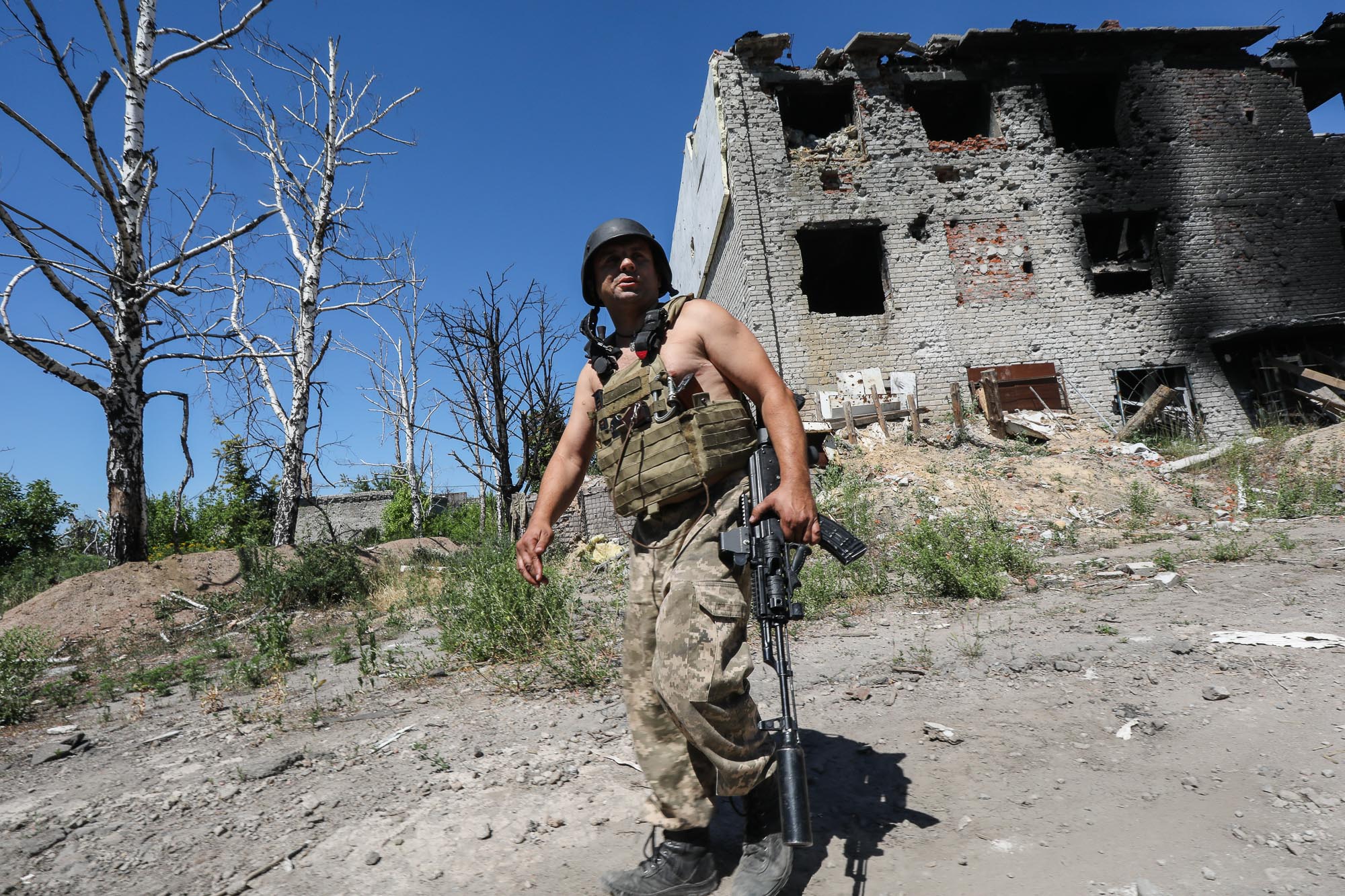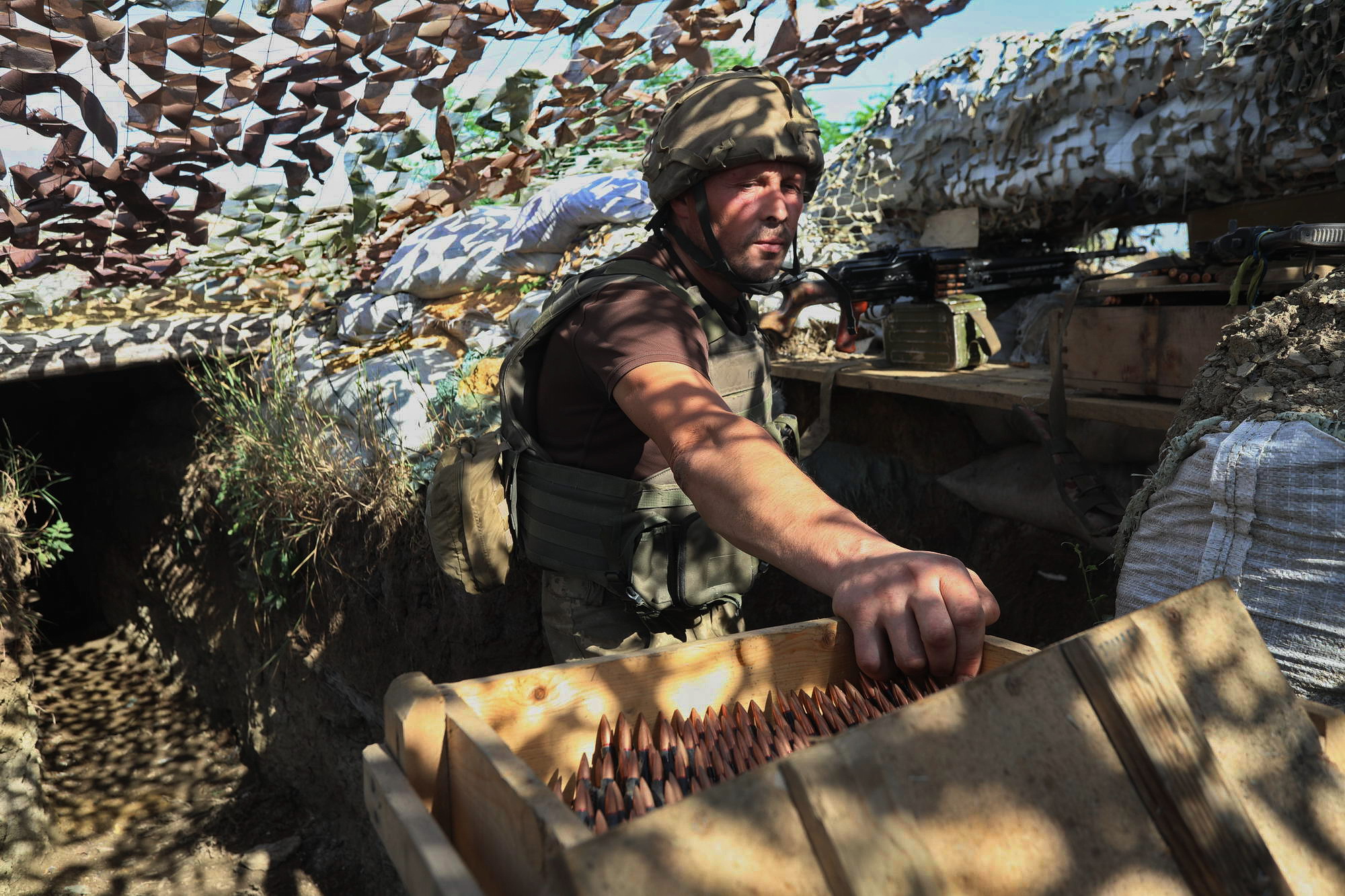Let your imagination take you a century back in time, to the fall of 1918, when the German Empire, facing a hopeless situation on the Western Front, was forced to beg for peace.
It was still occupying vast territories stretching from Belgium to the Baltics and eastern Ukraine and had millions of men in arms. But the Reichswehr’s top general Erich Ludendorff knew that Allies could crack the frontline within just 24 hours. After years of brutal battle of attrition, the empire was totally exhausted — economically, militarily, and morally. Even its rear front was painfully suffering from shortages of basic resources and food.
Germany was defeated in World War I — and soon put through the bitter humiliation of the Versailles peace treaty that stripped the prideful nation of its armed forces and its territories, and burdened it with insane reparations.
But lots of German veterans refused to admit this defeat.
Many of them did not come to grips with the insufferable fact the grand army that seemed still battle-worthy and eager to fight was ordered to surrender. They put the blame on cowardly politicians in Berlin for betraying them and having their victory stolen.
Their resentment, aggravated by the economic collapse of the early 1920s, brought them to revanchist paramilitary groups like Stalhelm or Freikorps clashing with uprising communists in street fighting.
Unwanted in civilian life and frustrated, they fiercely protested against the unjust peace and humiliating dictate of France and Britain. Tens of thousands of veteran paramilitaries eventually got caught in the net of far-right demagogues like Adolf Hitler, who were offering pat answers to complicated questions and pointing fingers at who was to blame: The democratic government, the left, the Jews.
The tragic fate of Germany’s Lost Generation offers a bitter lesson to what’s happening now in Ukraine.
After five years of grueling static war against Russian proxies, Ukraine is now stumbling its way towards a raw deal with the Kremlin on the eastern Donbas. It looks like Ukraine will be eventually forced to implement the ill-fated Minsk agreements, which would allow Europeans to declare their war reconciled and lift most of their sanctions on Russia.
The indefinite delaying of the Donbas question is now reaching its limits due to the growing pressure of Berlin and Paris. This simply could not continue forever, and the Ukrainian leadership knew this.

A Ukrainian soldier adjusts his collimator sight as he draws his combat duty in the town of Zaitseve on June 25, 2018. (Volodymyr Petrov)
And the worst part is that Kyiv now basically stands back against the wall. A purely military solution in Donbas is obviously impossible, while the time for extensive political, economic, and military reforms in Ukraine has been deplorably wasted.
In some form or other, Kyiv will be shamefully forced to what it agreed on after the battlefield debacles of Ilovaisk and Debaltseve in 2014-2015: To conduct the disengagement of troops all along the frontline, to hold local elections in Russian-occupied zone, and to provide it with “a special territorial status.”
In other words, to agree on a semi-independent, fully-armed, Russian-controlled parasite enclave put down the nation’s throat.
Now here’s the main question: How are the Ukrainian war veterans and military servicepersons are feeling about this?
They are feeling the same as German veterans of World War I — being stabbed in their backs, betrayed, and stripped of their righteous victory on the battlefield.
The scales are different, but the principle is the same.
The war is not over yet, but the first major steps by President Volodymyr Zelensky towards the Minsk settlement have triggered an appallingly furious reaction among those united by the Donbas war.
No wonder war veterans were a large part of the angry crowds hitting the streets all across Ukraine to protest against the Steinmeier Formula, which offers the Russian-occupied areas of the Donbas local elections and autonomy. No wonder that absolute majority of battle-hardened officers and soldiers, both serving and retired, are furiously opposing the pullback in Donbas, part of the agreed mutual disengagement with Russian-backed forces.
There are even voices calling on fellow soldiers to refuse to comply with orders to leave their trenches.
No one can blame them for such sentiments. Like German veterans 100 years ago, they feel still ready to go on fighting till the bitter end.
They have seen their frontline buddies ripped in gory pieces in insane mortar assaults. They chopped their enemies’ throats with sapper shovels in hand-to-hand combat. They hit booby-traps while crawling back to their lines after night-time raids against new hostile observation points.

A Ukrainian soldier walks near a burnt-out building at the Promzona area of the front line near Avdiyivka on June 21. (Volodymyr Petrov)
An estimated 4,000 fighters were killed in action for the sake of the Ukrainian cause.
There are reports saying that creating a demilitarized zone in Donbas can envisage Ukrainian combat formations leaving a whole range of iconic frontline sectors like the ruined town of Pisky, the stronghold of the legendary defense of the Donetsk Airport, or Shyrokyne near Mariupol — all defended steadfastly for years and drenched in the blood of Ukrainian warfighters.
You can’t simply tell them that in our situation we have no realistic options other than bargaining the best possible deal in Minsk. Their sacrifice was too costly to accept this without a fight.
Anger and resentment have already brought many of Ukrainian war veterans to the far-right forces like the National Corps led by Andriy Biletskiy. And they are moving beyond words again. As soon back as on Oct. 9, nearly 150 National Corps activists and came to Zolote to protest the disengagement. They vowed to stay upholding the town in case of Ukrainian withdrawal.
Their arrival resulted in a brawl with the police, during which the law enforcers were reported to have made a warning shot.
The day before, Andriy Gergert, the deputy commander with the paramilitary Ukrainian Volunteer Army, an offspring of the Right Sector, asserted that the volunteer formations would get back to Donbas to replace the regular army in the demilitarized zones.
Among those trying to break through police checkpoints in Zolote on Oct. 9 were members of the Freikorps — another far-right organization explicitly taking its cue from the German veteran union of the 1920s and inviting angered Donbas veterans to its ranks.

A Ukrainian soldier checks his ammunition reserve at a machine gun nest near the Russian-occupied Donetsk Oblast city of Debaltseve, 600 kilometers southwest of Kyiv, on July 31, 2017. (Volodymyr Petrov)
More is yet to come as Ukraine is forced into new “compromises for the sake of peace.”
At the end of the day, we are likely to end up having tens, if not hundreds, of thousands of frustrated, combat-hardened people seeing that the cause they fought for was thrown down the dumper.
That Russian collaborators in Donbas are enjoying fully legal semi-independence from Ukraine, having their own armed forces, and claiming tributes from the Ukrainian state budget. That they are blocking the country’s Euro-Atlantic path and talking about their integration into Russia.
And moreover, that they are considering themselves victors in this unfinished battle.
It will be a pure miracle if this situation does not escalate into an even more brutal and hateful war several years after.
So those making decisions in Kyiv, Paris, and Berlin, and Moscow, should remember the lesson in history: Don’t mess with a frustrated war veteran angered with an unjust and humiliating peace dictated to him.
Those making decisions in Europe should remember that they still have leverage on the Kremlin. And that it is in their vital interests to force a really acceptable deal over Donbas accommodating not only their desire to get rid of Russian sanctions but also Ukrainian interests too.
For instance, in terms of the withdrawal and disarmament of all militant formations and Russian regular troops. And holding really free and democratic elections in Donbas under Ukrainian legislation. And restoring the Ukrainian control of its own border with Russia.
Otherwise, history is likely to repeat itself again in some form.
